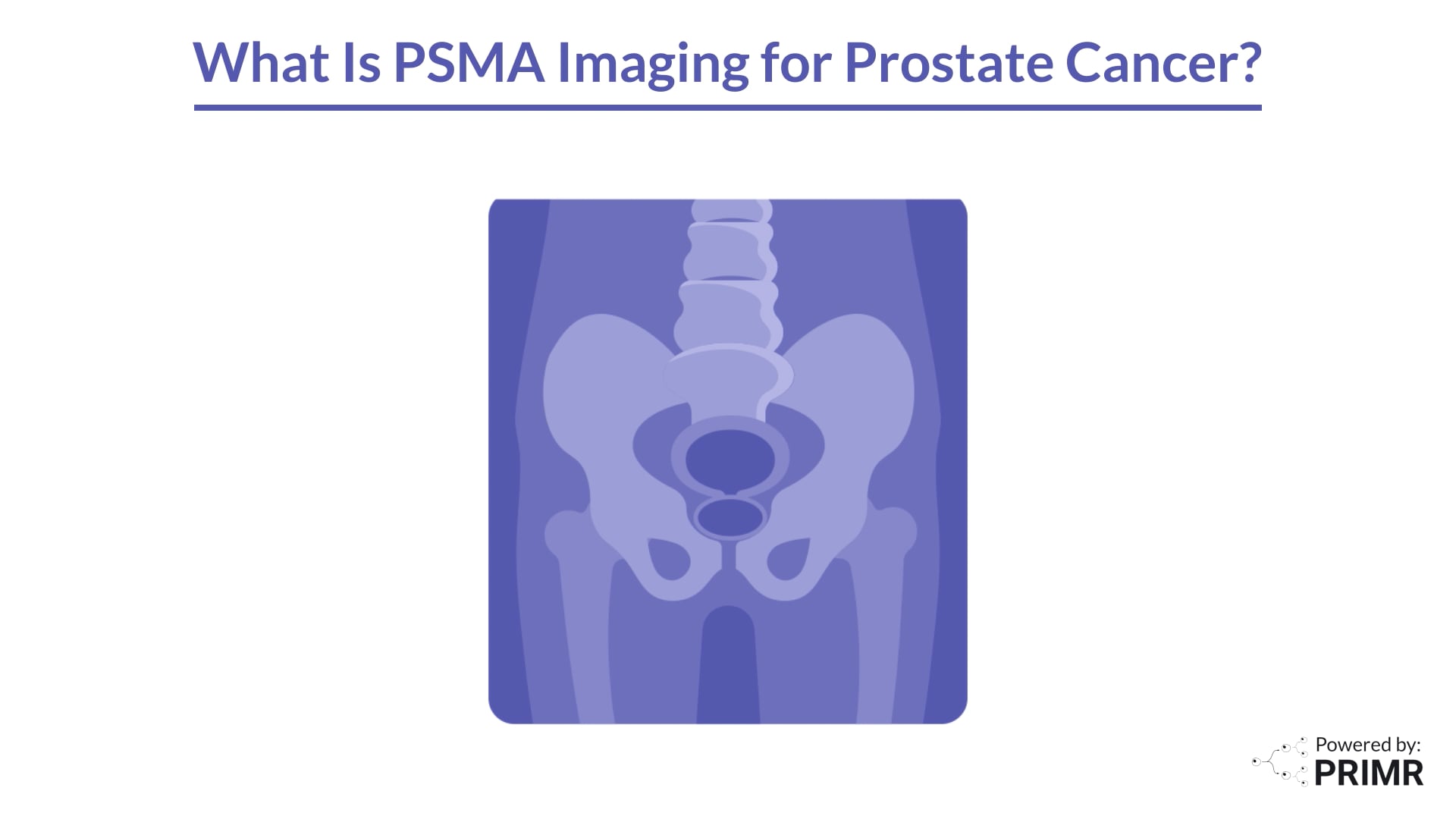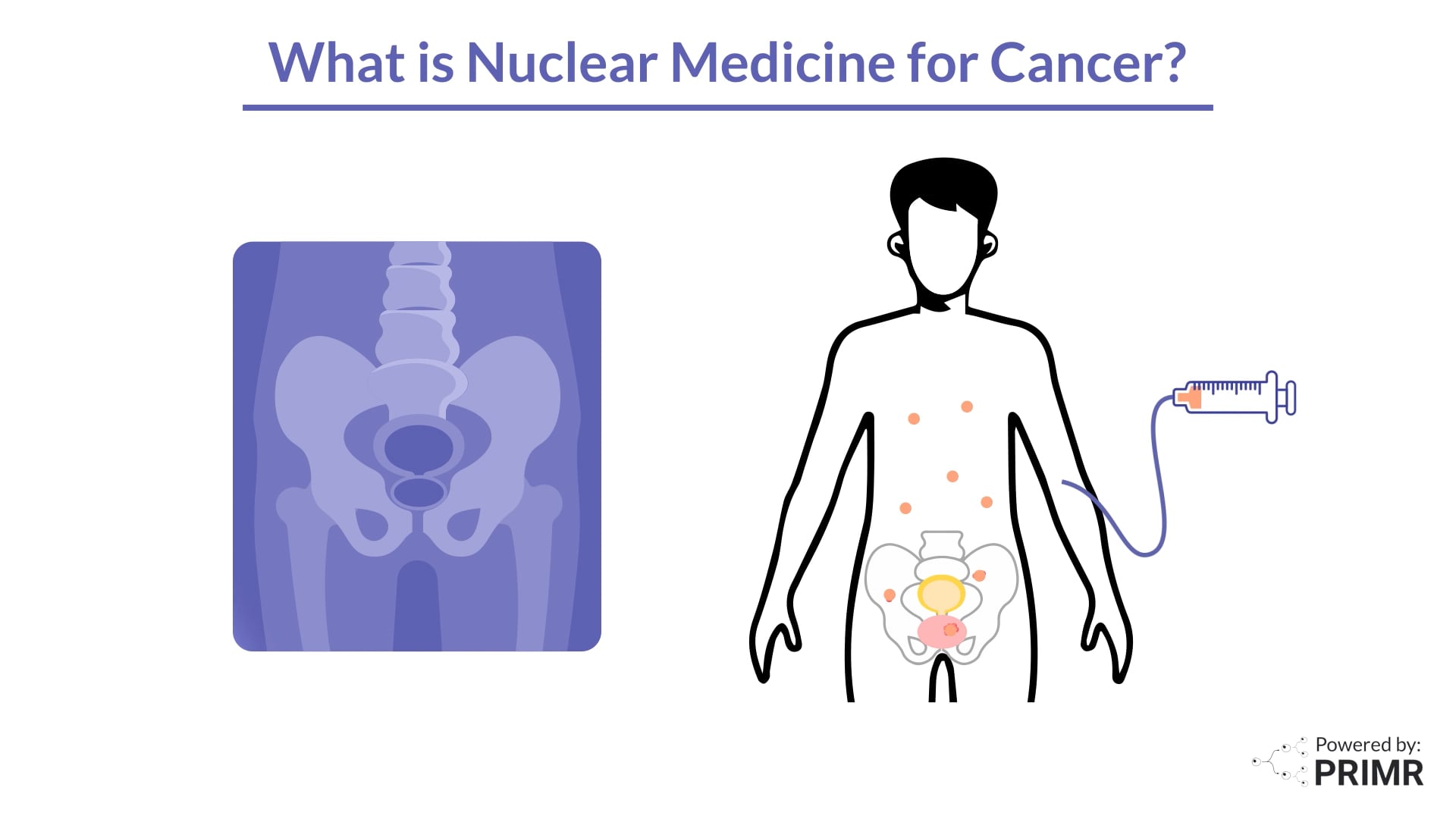What is PSMA Treatment?
This video explains PSMA-targeted radioligand therapy (RLT), a treatment for men with advanced prostate cancer. It shows how PSMA drugs deliver radiation directly to cancer cells, who may be eligible, and the potential benefits and side effects.
Read the full video transcript below:
This video is an overview of treatment with drugs that bind with PSMA and how they are used in prostate cancer care.
Prostate cancer treatment has traditionally relied on treatments like surgery, radiation therapy, hormone therapy, chemotherapy, and other medication. While they can be effective, in some cases, cancer may continue to grow despite these treatments. In recent years, a targeted treatment has emerged called PSMA-targeted radioligand therapy or PSMA-targeted RLT.
So, what exactly is PSMA-targeted RLT, and how does it work?
How Does PSMA Treatment Work?
PSMA, or Prostate-Specific Membrane Antigen, is a protein found in high amounts on prostate cancer cells. While normal other tissue also has PSMA, prostate cancer cells produce much more of it, making it a valuable target for both diagnosing and treating prostate cancer.
In PSMA treatment, scientists develop special molecules that attach to PSMA. These molecules can be attached to radioactive isotopes. This approach delivers radiation to the targeted cancer cells while minimizing damage to healthy tissues. Here’s how it works:
The radioactive drug (also known as a radiopharmaceutical) is injected into the bloodstream. This drug attaches to PSMA proteins on cancer cells.
Once attached, the radioisotope delivers radiation to the cancer cells, destroying their DNA and stopping them from growing or spreading.
Unlike traditional radiation or chemotherapy, which affects a broader area, PSMA treatment targets cancer cells because they have higher concentration of PSMA on their cell surface, reducing harm to healthy tissues. This is especially useful for men with advanced prostate cancer which has spread beyond the prostate.
Who is Eligible for PSMA Treatment?
PSMA treatment is recommended for men with advanced prostate cancer that has also spread beyond the prostate and is no longer responding to standard hormone therapy. This is called metastatic castration-resistant prostate cancer or mCRPC.
To see if this treatment will work, doctors may order a PSMA PET scan, a special imaging test that checks if the cancer cells are expressing PSMA.
Men who qualify for PSMA treatment may have already tried other options, like chemotherapy or hormone therapy, but need a different approach to help control their cancer.
Benefits and Potential Side Effects
One of the biggest advantages of PSMA treatment is its ability to target cancer cells. This can lead to tumor control. Tumor control may occur when the treatment directly attacks cancer cells, helping slow or stop the disease progression.
However, as with any cancer treatment, there are potential side effects, including kidney damage, male infertility, dry mouth, nausea, fatigue, weight loss, abdominal pain, loss of appetite, changes in bowel movements, vomiting, urinary tract infection, and low blood cell counts. Discuss these and other potential side effects with your health care provider. Doctors closely monitor patients to manage any side effects and adjust treatment as needed.
PSMA treatment is a rapidly evolving field, with ongoing research exploring new ways to improve its effectiveness and expand its use. Not all of these radiopharmaceuticals are the same so talk to your doctor about what option may be best for you. Investigators are studying combinations with other treatments, like hormone therapy, and scientists are developing new drugs to make PSMA therapy even more precise.
As research continues, PSMA treatment is expected to become an important option for men with advanced prostate cancer.
This is not medical advice. This video is for educational purposes only. Talk to your doctor before making any medical decisions.

.jpg)
.jpg)
%20Thumbnail.png)







.jpg)
.png)



.jpeg)










.webp)



.jpeg)

